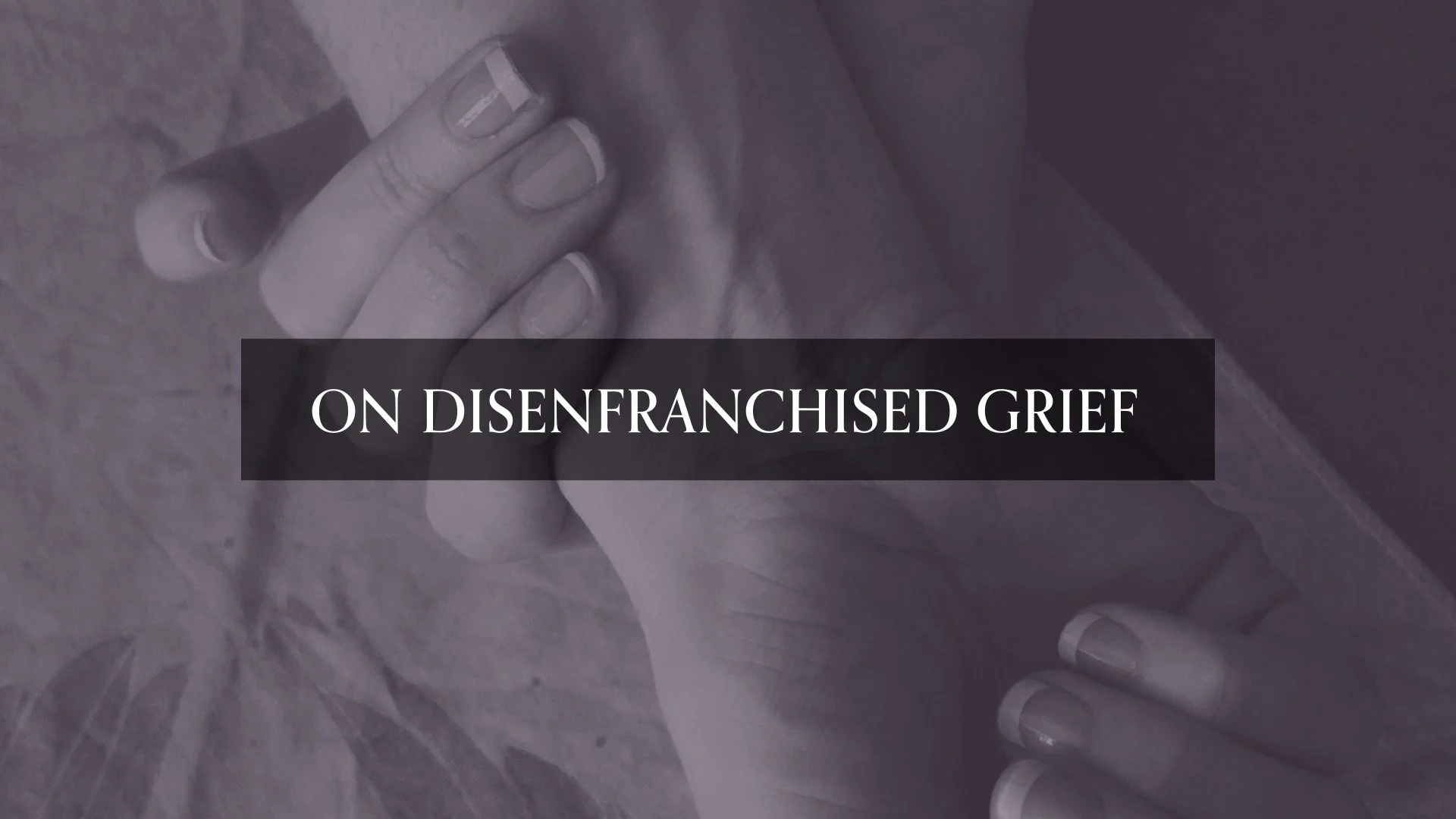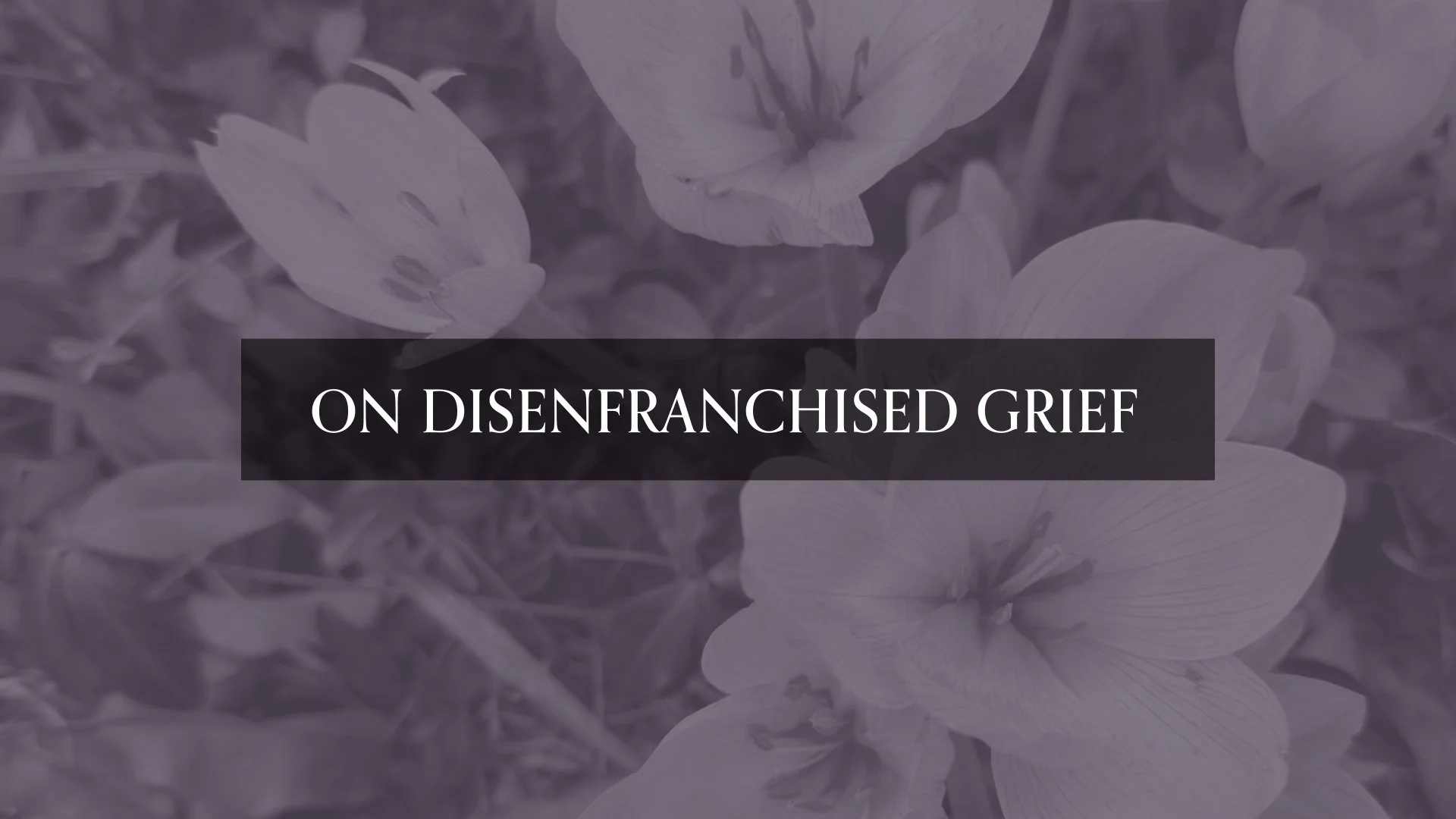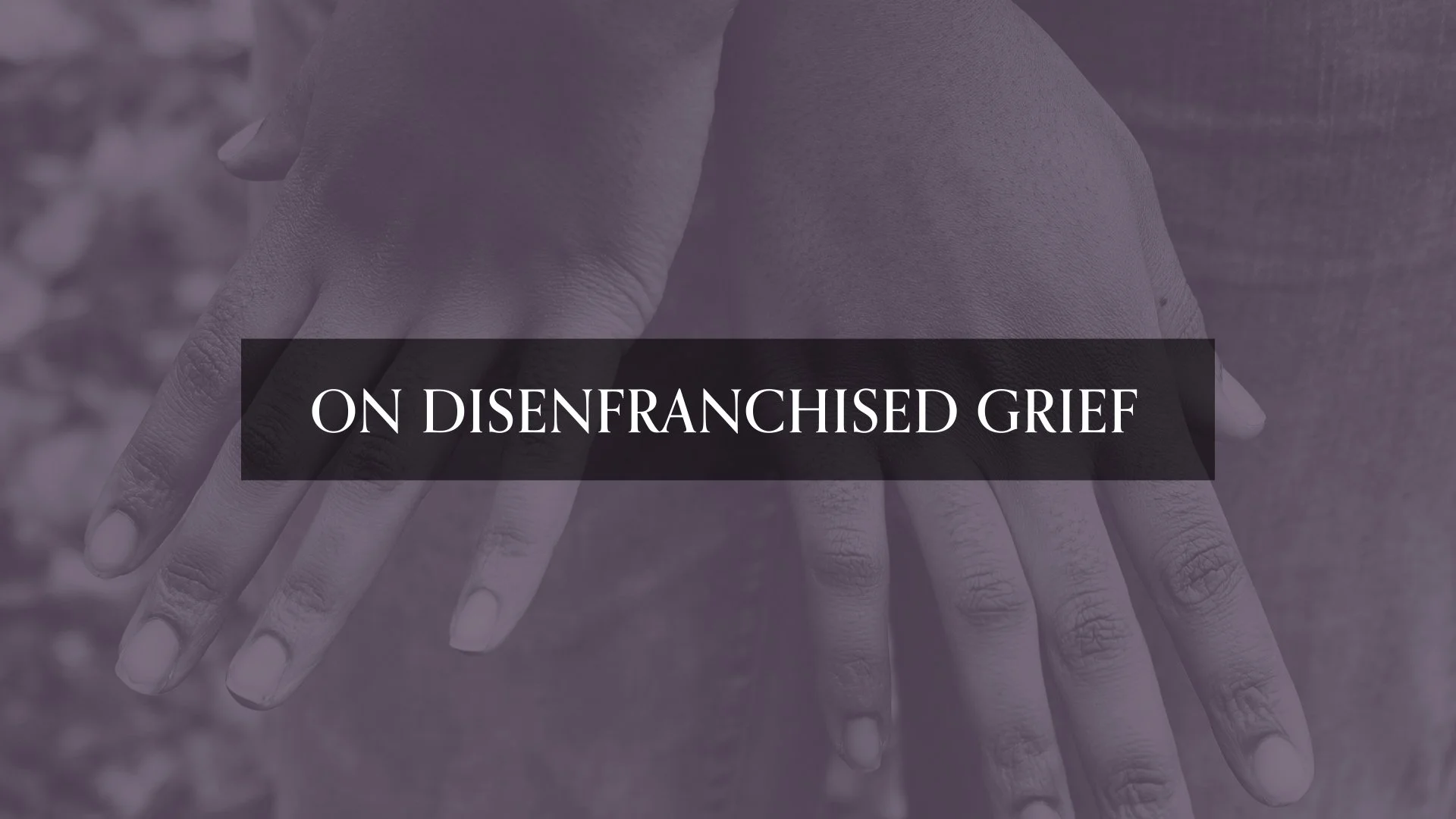DISENFRANCHISED GRIEF
Disenfranchised grief refers to grief that is not openly acknowledged, socially supported, or publicly mourned. Survivors’ experience a wide range of disenfranchised grief.
Acacia
"And it's very isolating. And that makes you not want to talk, even if they were supportive- but you wouldn't understand, so why waste my breath trying to describe this? Like, it's hard enough to live it, let alone to recount it."
Sara
"I had my children's names picked out, I was supposed to be a mom right now. And, um, and I, I miss the dream of what I thought I had."
Mulberry
“I'm not quite the same girl. But I'm a better, more improved person.”
Aspen
“So it's like a cycle. And my relationship fit perfectly within time frames of this cycle.”
Nataija
“I think going back- back to the abuser, that's not validated, and they may not understand why.”
A
“And I was sent some wonderful people, and a tribe to help me cope. So I went with it, and accepted what came.”
Lilac
“It impacts every aspect of your life. And then, those you care about at the same time. And it's just, it weaves into everything.”
Palmetto
“Unless you're in my shoes and understand the situation, you don't understand why I can't do this right now.”
Foxglove
“I think grief is like the wrecking ball that kind of smashed through the foundation, and as it did so, it stirred up all the other really strong, awful emotions- the sadness, the fear, the anger, and so much more. And at the center of it all, you know, the grief is still there.”
Oak
“Abuse is something that does not discriminate, whatsoever.”
Cedar
“Being re- traumatized comes in forms of, even to this day, my family saying, you know, 'You're too nice', because he's still in my life.”












